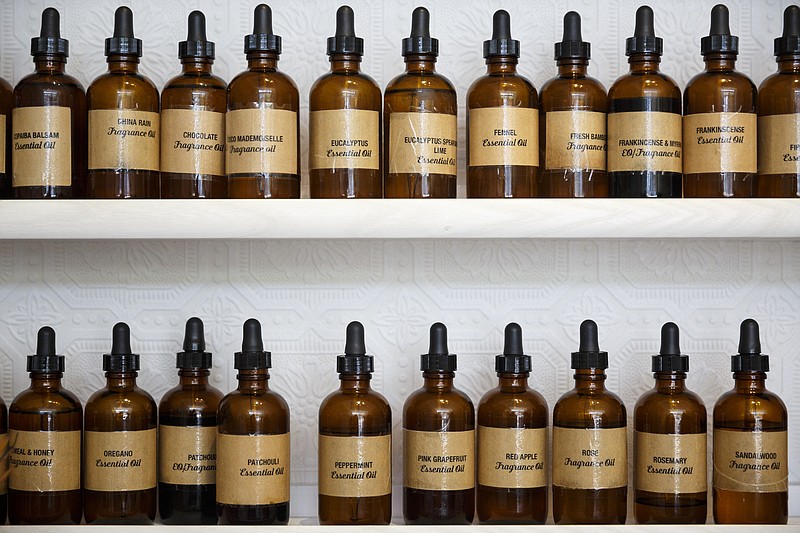Photo Gallery
Great Escapes
Rarely can one find art painted by armadillos, elephants, iguanas and more. Little Rock Zoo animals' talent on canvas was featured at the Great Escapes Art Show and Sale held at Boswell Mourot Art Gallery to support the Little Rock Chapter of the American Association of Zoo Keepers.
While more and more people find that aromatherapy using essential oils may be a soothing way to relax, Tennessee health officials say that anyone using the oils should be aware that some of them can be dangerous if swallowed.
The Tennessee Poison Center at Vanderbilt University Medical Center says the number of incidents involving essential oils doubled between 2011 and 2015, and 80 percent of the cases involved children.
Essential oils generally include the concentrated "essence" of plants and herbs, including camphor, clove, lavender, eucalyptus, thyme, tea tree and wintergreen oils. They are removed from the plant either by using steam to distill the oil or by compressing plant matter to squeeze out the oils, said Jennifer Strain, owner of Good Fortune Soap and Spa on South Broad Street, which sells essential oils, among other products.
The use of essential oils has increased rapidly in recent years among consumers seeking more natural products to treat pain or anxiety, although there is limited medical research supporting some of the claims. The U.S. market for all essential oils was estimated at about $2 billion in 2016, with about 30 percent of that going for spa and relaxation products, according to a report by Grand View Research.
About 12 percent of all U.S. households had used an essential oil product by 2012, up from 6 percent in 2009, according to research by Aura Cacia, an essential oils manufacturer.
Essential oils can be used externally to relieve stress or for other medicinal purposes, but they can be toxic if taken internally. Children may be attracted to the sweet-smelling liquids and swallow them, according to the Poison Center.
While the smell may be sweet, the taste is often bitter.
"In children, poisoning typically occurs when they try to swallow the oil, but choke so that a little of it goes into the lungs which causes pneumonia," said Justin Loden, a poison information specialist at the center. "It only takes 2 milliliters [less than half a teaspoonful] to do that."
Children have also been poisoned by the excessive use of essential oils on the skin, Loden said. Children are at risk because their skin easily absorbs oils.
Besides pneumonia, swallowing essential oils can cause mouth or throat irritation, nausea and vomiting. They can also affect the central nervous system, resulting in agitation, hallucinations, delirium and seizures.
Strain said all of her bottles of essential oils have an "orifice reducer" on the top so only a drop or two comes out at a time, making it hard for children to swallow a significant amount.
"It's just common sense. You don't want your kids drinking anything that is not meant for drinking," she said.
Strain said she advises customers who have specific medical problems to check with their doctors to determine if essential oils are the right fit for them.
"You would want to take extra precautions for pregnant women and children of all ages," she said. Strain said she is using some oils to treat her pregnancy-related acid reflux, but only after first getting her doctor's OK.
And while many of the oils are toxic, parents should not panic if their children swallow small doses, according to Donna Taylor, an information specialist at the Poison Center.
"With most of the calls we have, the children can be kept at home because they have had only a lick or a taste or a tiny sip of an oil," she said.
Contact staff writer Steve Johnson at sjohnson@timesfreepress.com, on Twitter @stevejohnsonTFP, and on Facebook, www.facebook.com/noogahealth.

